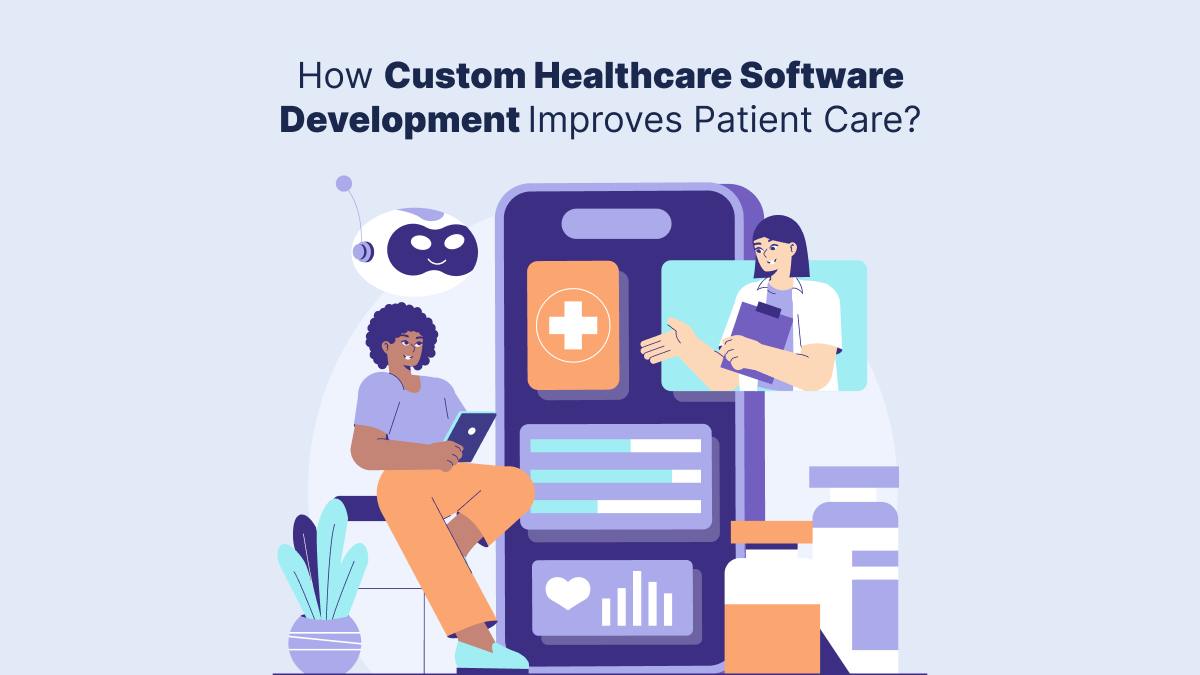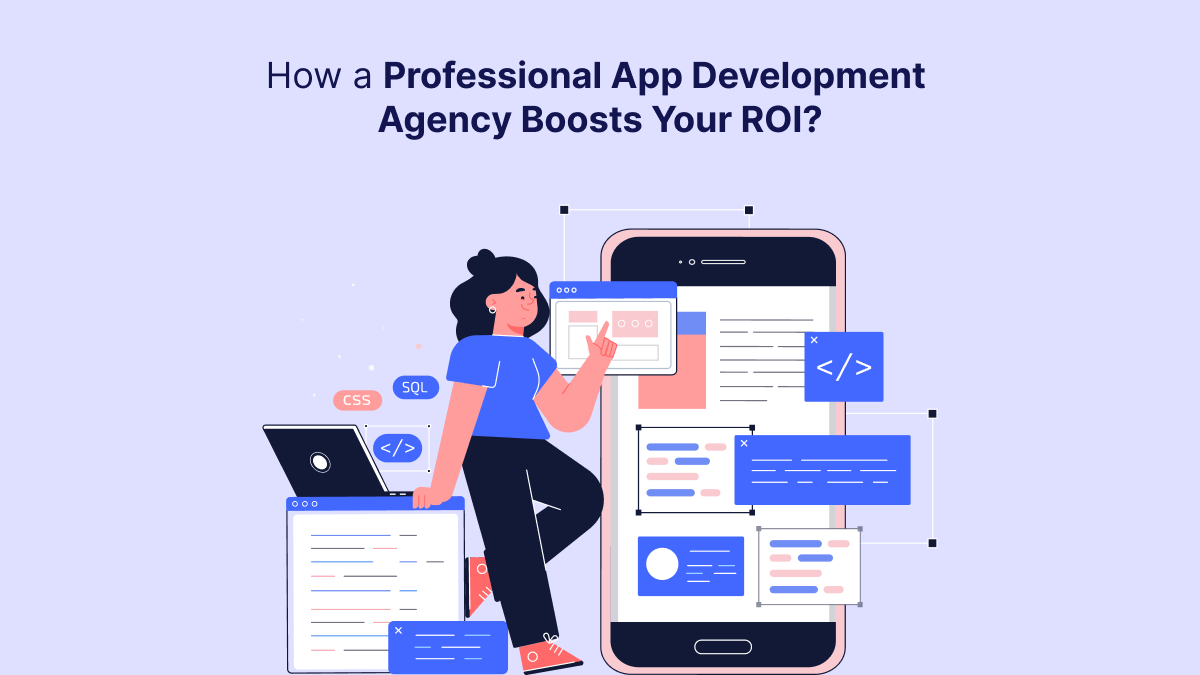
In the modern healthcare environment, technology plays a crucial role in how medical services are delivered and managed. Among these technological innovations, custom healthcare software development stands out as a powerful tool to enhance patient care. Unlike off-the-shelf software, which offers generic features and often lacks flexibility, custom healthcare software is tailored to meet the specific needs of healthcare providers and patients. Whether it’s improving diagnostics, streamlining hospital operations, or enabling better communication between patients and doctors, custom solutions are reshaping the healthcare industry.
In this blog, we will explore how custom healthcare software development directly contributes to better patient outcomes. We’ll look into different types of custom software, key benefits, and why personalization in digital tools is vital for patient satisfaction and overall healthcare quality.
Understanding Custom Healthcare Software
What is Custom Healthcare Software?
Custom healthcare software is a digital solution designed specifically for a healthcare organization’s unique needs. Instead of using general-purpose platforms that may include irrelevant or unnecessary features, custom software is built from the ground up or heavily modified to suit a hospital, clinic, or even a group of specialists. These can include electronic health records (EHR), patient portals, diagnostic support systems, and medical billing platforms.
Why Choose Custom Over Generic?
Generic healthcare software might serve basic purposes, but it often falls short when providers need a more refined approach to patient care. Custom solutions allow for integration with existing systems, flexibility to change or scale, and features designed around the real-life workflow of healthcare professionals.
The Role of Custom Software in Patient Care
Streamlining Patient Data Access
Having instant access to accurate patient data is essential for any healthcare provider. Custom healthcare software can ensure that all patient data—like medical history, test results, prescriptions, and appointments—is organized in one place and accessible in real-time. Doctors can spend less time searching for information and more time focusing on the patient.
Enhancing Doctor-Patient Communication
Custom-built mobile apps and portals can create secure and direct communication channels between doctors and patients. Patients can ask questions, report symptoms, and receive updates without visiting the hospital. This improves patient engagement and makes healthcare more proactive rather than reactive.
Supporting Accurate Diagnostics
Custom software can be integrated with diagnostic tools and AI-based systems that analyze symptoms and test data. These platforms support healthcare professionals by suggesting possible diagnoses or treatment options, helping to reduce human error and improve accuracy in patient care.

Personalized Treatment Plans
Custom Software Enables Tailored Healthcare
Every patient is different, and so are their health conditions. Custom healthcare software makes it easier to create personalized treatment plans by collecting and analyzing individual patient data. This approach increases the chances of successful treatment and patient satisfaction.
Managing Chronic Diseases
Chronic conditions like diabetes, heart disease, or asthma require continuous monitoring and adjustments in treatment. Custom software can provide tools for remote monitoring, medication tracking, and automated reminders. These features help patients stay on top of their health and doctors to intervene at the right time.
Improving Hospital and Clinic Operations
Reducing Wait Times
Custom scheduling systems can optimize appointment slots based on doctor availability, patient needs, and treatment types. This reduces waiting times and improves the overall experience for patients.
Managing Workflow and Resources
From assigning hospital beds to scheduling surgeries, custom healthcare software ensures that resources are used efficiently. When the backend operations are smooth, it directly affects the speed and quality of patient care.
Better Coordination Between Departments
Custom platforms can ensure all departments—emergency, radiology, pharmacy, and administration—are working together seamlessly. For example, a diagnostic report from the lab can be automatically sent to both the consulting physician and the pharmacist. This ensures faster treatment and fewer chances of miscommunication.
Enhancing Patient Engagement and Empowerment
Patient Portals for Transparency
With custom patient portals, individuals can access their medical records, lab results, prescriptions, and billing information anytime. This transparency builds trust and allows patients to be more involved in their care decisions.
Remote Consultations and Telemedicine
Especially post-pandemic, telehealth has become a major part of healthcare delivery. Custom telemedicine software lets patients consult with doctors from the comfort of their homes. This is especially helpful for elderly or physically challenged individuals who may find it difficult to visit hospitals frequently.
Mobile Health Apps
Custom mobile apps allow patients to track their vitals, medication intake, and physical activities. These apps can be connected to wearable devices, giving doctors real-time updates and alerts in case of emergencies.
Read more: How to Integrate Healthcare Software Development Solutions Seamlessly?
Data Security and Compliance
Protecting Sensitive Patient Data
Healthcare data is one of the most sensitive types of information. Custom healthcare software allows developers to build strong encryption and access control features right from the beginning. This minimizes the risk of data breaches.
Meeting Regulatory Standards
Healthcare providers must follow various national and international regulations, such as HIPAA or GDPR. With custom software, compliance can be built into the system, ensuring that all operations follow legal requirements and reducing the chances of costly fines or reputational damage.
Scalability and Future-Proofing
Adapting to Changing Needs
Healthcare is constantly evolving, with new treatments, technologies, and regulations emerging regularly. Custom healthcare software can be updated and scaled as needed without starting from scratch.
Integration with New Technologies
Custom-built solutions are easier to integrate with upcoming technologies like artificial intelligence, machine learning, or blockchain. This future-proofing ensures that healthcare organizations stay ahead in innovation.
Conclusion
Custom healthcare software development has significantly transformed the way medical services are delivered and experienced by patients. It allows healthcare providers to go beyond one-size-fits-all solutions and create tools that reflect their unique workflows, goals, and patient expectations. From personalized care plans and quicker diagnostics to better patient engagement and smoother hospital operations, the benefits are wide-reaching. In a world where patient-centered care is becoming the norm, custom software is not just an advantage but a necessity.
To implement such solutions successfully, it’s important to partner with experts who understand the dual demands of healthcare and technology. An on demand app development company can help healthcare providers design, develop, and maintain software systems that improve efficiency, support regulatory compliance, and most importantly, enhance patient care. As the industry continues to evolve, embracing custom solutions will ensure healthcare providers remain effective, efficient, and truly patient-focused.
FAQs
How does custom healthcare software improve patient care compared to ready-made solutions?
Custom software is built specifically to meet the needs of a particular healthcare provider, ensuring better functionality, seamless integration, and more relevant features that directly improve patient services.
Can custom software help in managing chronic conditions?
Yes, it can include tools for remote monitoring, medication reminders, and health tracking, all of which help in managing long-term conditions like diabetes, asthma, or hypertension.
Is custom healthcare software secure for handling patient data?
When developed with security in mind, custom healthcare software can include robust data protection measures such as encryption, access controls, and compliance with data protection laws.
Does custom software support telemedicine services?
Absolutely, many custom solutions include telehealth capabilities such as video consultations, appointment scheduling, and online prescription services.
How does software personalization help doctors and healthcare staff?
It allows them to work with systems that align with their daily routines, improves coordination among teams, reduces administrative workload, and allows them to focus more on patient care.



Write a comment ...